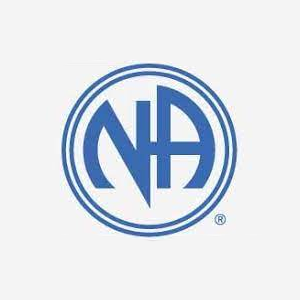Drug & Alcohol Rehab in Lancashire

How Does Rehab Work?
Rehab involves the support services and therapies that people who have drug and/or alcohol dependence receive to overcome addiction and subsequent relapse. After a medical assessment and detox are completed, individuals will receive addiction treatment in the form of therapy. Treatment is made up of therapy from a qualified counsellor, the attendance of group meetings as with a 12 Step programme, and the option of inpatient or outpatient rehabilitation. Inpatient rehab services require that clients live at the residence or centre for the duration of therapy. Outpatients will attend therapy by counselling or meetings but will not stay at the facility. Consultation with a medical professional and an individual assessment can help decide if inpatient or outpatient services are suited to your needs.
What Happens During Residential Rehab?
The decision to seek rehab for drug and alcohol addiction is a brave one and can be supported with individualised rehabilitation services. We provide a breakdown of what you can expect during the process of drug and alcohol rehabilitation.
Rehabilitation starts with an assessment done by a skilled medical professional. The goal is to investigate your history with substance addiction, and whether pre-existing medical conditions are present. This includes any comorbidities such as mental health disorders that require specialised treatment.
Assessments are followed by detox. Individuals who enter detox will begin withdrawing from substances including alcohol, as the body returns to a normal state of function. This timeline will differ depending on the type of substance used and the length of dependency. Only when the body no longer contains the substance will individuals participate in a treatment plan.
Rehabilitation includes meeting with a counsellor for private & group sessions, participation in skill-building activities as with an inpatient or residential rehab, or group meetings that are common with outpatient 12 Step programmes. We explore the various phases of rehab in more detail.
1. Assessment

To receive the best treatment for your needs, an assessment is definitely the first stage of the recovery process. Reviews are carried out by a medical expert and will include a telephone screening. The professional will ask questions regarding your wellbeing, your substance use, any history of addiction, and whether you have any comorbid mental health problems. A telephone assessment offers staff members important information that will help to safely handle the detox process.
When you wish to pursue treatment for drug and alcohol addiction, a medical assessment must be completed. Assessments will guide therapy because it provides staff with the information, they need to develop a tailored treatment plan or advise on the appropriate intervention.
2. Detox

If you are dependent on drugs and/or alcohol or you have a substance in your body, you must undergo detox before you can proceed with a recovery programme. Detox is performed in an inpatient facility or a medical facility. During detoxification, the substance is gradually cleared from the body which typically results in withdrawal symptoms.
The reason medical detoxification from substances is advised is owed to the difficulties and the nature of withdrawal symptoms that may occur during this time. Without reliance on a professional service and medical attention, the risk of relapsing is increased. Individuals who receive detox and an assessment will be required to participate in a therapeutic programme which involves residential rehab or outpatient services.
3. Therapy

Once a medical assessment and detox are completed, individuals will start therapy. Therapeutic intervention may consist of inpatient or outpatient programmes that depend on your finances and life commitments. Some of the most common therapies you can expect at a treatment centre include traditional one-on-one therapy, trauma counselling, and skill development, as well as group therapy sessions.
Step by Step Process for Residential Rehab
To understand your medical and mental health history.
Arrange a suitable date to begin your journey to recovery.
Begin the managed withdrawal process from substances including alcohol.
To understand the root cause of addiction and how to overcome it.
Aftercare is provided to help manage the risk of relapse.
To help heal the wounds that addictive behaviour has caused others.
Find your Nearest Rehab Centre in Lancashire
The nearest rehab centre is Inspire Preston Drug and Alcohol Service.
Address: Inspire Preston Drug and Alcohol Service, St Wilfrids building, Fox St, Preston PR1 2AB, United Kingdom
Call 0333 4444 432 to discuss your alcohol or drug rehab requirements and any other questions you may have about the process of residential rehab.
Outpatient Addiction Services in Lancashire
When you look for a treatment programme, it will be influenced by the nature of the addiction and your budget requirements. Individuals who enter an inpatient or outpatient programme will need to give their full commitment to get the most out of treatment. Let’s determine the pros and cons of outpatient services compared to residential treatment.
During an outpatient programme, you will not have to stay at a clinic to receive treatment. It is a more flexible arrangement for those who need support and therapy but do not want to commit to a 24-hour inpatient programme. The purpose of outpatient programmes is to help you benefit from counselling while attending to family, work, and other lifestyle commitments.
PrivateOutpatient care includes individual counselling with a therapist. You will travel to the therapist and engage in hour-long treatment sessions. Aside from private therapy, you can also find free services from charities and government-backed organisations to address substance dependencies.
The Benefits of Outpatient Services
Private Outpatient services will include individualised care plans to address the specific problems and challenges that are leading to addictive behaviours. Outpatient support is commonly sought by those who have families to take care of or those who need to work full-time. Outpatient programmes are more affordable than residential treatment.
The Challenges of Outpatient Services
While outpatient play a vital role in accessible addiction treatment, it is also associated with a higher incidence of relapse. While free outpatient services do exist through the NHS or UK-based charities, waiting times are to be expected and treatment tends to be more generic.

How Much Does Rehab Services Cost in Lancashire?
Alcohol and drug rehab within a residential clinic can cost around £1500 – £4000 per week. Residential rehab is one of the more expensive types of treatment for drug and alcohol addiction. For free and affordable services, charities and government funded services offer care programmes for all individuals seeking help for addiction.
Fortunately, free programmes are provided by organisations including the NHS and charities such as Turning Point (that requires self-referrals). Other organisations that provide free and community-based programmes for drug and alcohol addiction include Alcoholics Anonymous (AA), Cocaine Anonymous, and Narcotics Anonymous.
Support Groups in Lancashire

Chorley Big Book Study
St Bede's Church, 598 Preston Rd, Clayton Green PR6 7EB

Living Clean Group
Friends Meeting House 1 Meeting House Lane Lancaster Lancashire

Women's Meeting Group
Room 4 - 1st Floor Friends Meeting House 1 Meeting House Lane Lancaster Lancashire
The Pros and Cons of Seeking Treatment in Your Local Area
Pros
1. You are familiar with the area which may provide a layer of comfort/safety.
2. Family or friends can easily travel to visit or are close by.
3. You may save on the costs of travelling long distances for treatment, or free services may only be offered in your area of residency.
Cons
1. A local environment means access to drug dealers or other triggers. This is more of a concern if you choose outpatient programmes.
2. Not considering locations outside your local area could mean missed opportunities for more valuable and rewarding programmes.
3. Addiction treatment services that are close by do not always offer the best standard of treatment.
The CQC website will provide information and ratings on a service in the event you are unsure regarding a particular service.


